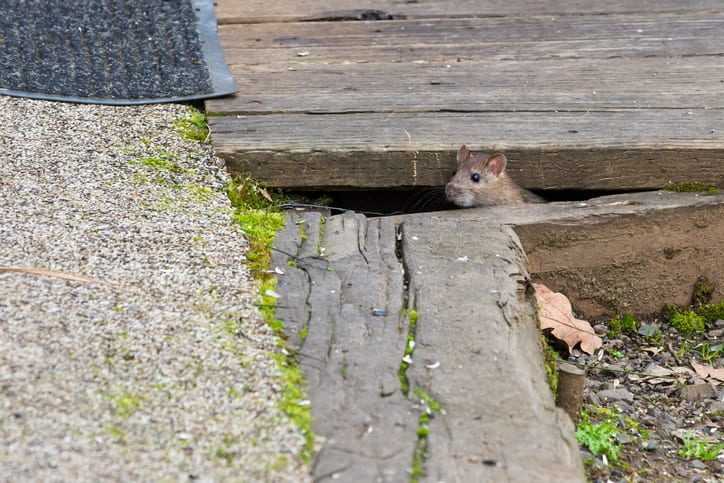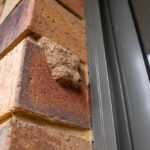Spring is on the horizon, but there’s still plenty of time for rodents to invade your home. While rodents can enter your home any time of the year, winter is when they are most likely to seek shelter and attract mice to your home.
Just because house rodents are a common issue, however, doesn’t mean you should have to accept them. Learn how to keep mice and rats away from your home with helpful insight from our residential pest control team at PURCOR
How and Why Rodents Invade Homes
Wondering how rodents enter your house or apartment? The answer, unfortunately, is extensive, as human dwellings provide ideal conditions for them. From clutter and poorly sealed trash cans to overgrown trees and bushes, rats and mice use a variety of methods to invade unsuspecting households.
To learn how to get rid of rodents in your house, the first step is to understand how and why they got there in the first place. Common reasons rodents get into homes include:
1. Lack of Cleanliness
While it’s true that rodents can invade your home regardless of cleanliness, a lack of cleanliness particularly attracts mice. If you tend to wait awhile before cleaning up spills, you might be inadvertently attracting rodents.
Even if you’re one to keep your counters wiped down and your floors vacuumed, you may have other untidy hotspots for rodents. Piles of newspapers or junk mail and laundry haphazardly strewn about your home give rats and mice more places to hide and materials to make a nest.
Easy Access into Your Home: Seal Entry Points
Leaving cracks or openings around the exterior of your property is like an open invitation to rodents to seek shelter in your home. Rats and mice can fit into holes about the size of a quarter and chew through most material to create a hole big enough to squeeze through.
Even high cracks in walls can become an issue—mice and rats can easily scale walls to find an entryway into your home. To prevent rodents from entering, it is crucial to seal entry points by closing any gaps or holes around your home.
Not sure where to look for these cracks and holes? One of our pest control specialists will inspect your property, assess any problem areas, and work with you to create a rodent prevention plan.
Additionally, if you have overgrown bushes or trees that are brushing against your home, ask our team about getting them trimmed. Overgrown branches act as bridges for rodents like squirrels and roof rats.
3. Leaking Water Pipes
Leaky plumbing isn’t just an issue for your home improvement budget—it can also lead to a mice infestation. Rats and mice need water to survive, and if there is a constant supply dripping from your pipes, that’s enough to convince them to move into your home. Routinely checking for leaks and addressing them when they happen will help keep rodents out of your home.
Indoor Plants Attracts Mice
Don’t throw away all your plants just yet. Rats and mice are attracted to plants that produce fruits and nuts. Additionally, bird feeders can attract rodents if not managed properly, as they provide an easy food source. If you want or need to keep your fruit tree inside, pick any fruit from the tree as soon as it ripens and either use or refrigerate it promptly. Keeping your plant pruned will help keep rats and mice at bay.
Consistent Food Source: Pet Food
Rats and mice will keep coming back to your home if it knows there is a consistent supply of food to be had. If you’re dealing with a house mouse infestation, you can count on these critters to stay in your home year-round as long as they have easy access to food.
The best way to combat rodents is to clean up any leftover food, crumbs, or drinks. If you keep dry goods in your pantry, make sure to seal them in thick plastic or glass vacuum containers, as mice can chew through food packaging. Additionally, ensure that pet food is stored in sealed containers to prevent attracting rodents. In addition to trapping the scent of the food, hard plastic or glass containers are more difficult for mice and rats to chew through.
6. Shelter from Harsh Weather Conditions
As we discussed earlier, house mice and other rodents will gladly seek shelter in your home to escape cold temperatures throughout the winter. Even if you’ve taken every precaution to keep rodents away from your home, there’s always a chance they may gnaw their way into your living space. Your attic insulation is also prime nesting material as the rats or mice prepare to have their babies.
External Factors that Attract Rodents
Rodents are opportunistic creatures, always on the lookout for easy access to food and shelter. Several external factors can make your home an attractive target for these unwelcome guests.
Signs of Rodent Presence
Detecting a rodent infestation early can save you a lot of trouble down the line. Here are some common signs that indicate you might have unwelcome guests in your home.
Request Rodent Infestation Prevention and Control From PURCOR
Whether rats and mice are infiltrating your home for shelter or food, PURCOR can help send those rodents scurrying for cover.
Using a combination of Integrated Pest Management (IPM) techniques, our knowledgeable pest control specialists will inspect your home, determine where rodents are entering, and recommend the best plan to control and prevent mice in your home. Properly store food in sealed containers to minimize the risk of attracting rodents.
Don’t let rodents make themselves at home in your living space—contact PURCOR to request your free estimate today!
"*" indicates required fields
"*" indicates required fields




